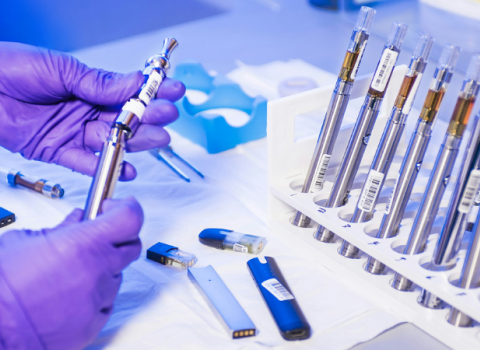
Science|Business Senior Editor Nuala Moran
At the other end of the cash spectrum, big pharma has never been better off. At a time when its counterparts in other sectors are facing the pain of de-leveraging or taking on longer term debt at higher rates of interest – or like General Motors and Chrysler – falling into the embrace of arch rivals, pharmaceutical companies are snuggling down with their money mountains. An average of $7.5 billion for each of the top 20 companies, according to a Datamonitor study we report on elsewhere in this week’s issue.
This will come in useful for the work in progress that is rebuilding drug pipelines.
Whereas two years ago it was necessary to spend time haggling over licence terms and deal size, biotech’s lowly share prices now make it a cinch to purchase companies outright.
This is leading pharma companies to drop any pretence that they are buying companies for access to innovative technology. What they want is products.
One small illustration of what can happen to promising technology platforms if the biotechs that own them are sold under duress: earlier this month when Medigene AG announced it was spinning out the core technology acquired when it bought Avidex Ltd, in October 2006. Medigene is, however, keeping one clinical stage and one preclinical product it acquired with Oxford, UK-based immunology specialist.
Evidently, these are the most valuable assets for now, but Avidex’s core technology for manufacturing monoclonal T-cell receptors holds the potential to open up the cellular arm of the immune system in the same way as monoclonal antibodies opened up its humoral component and ushered in a range of treatments for previously intractable ills.
This T-cell technology made some headway under Medigene’s stewardship, but the real focus has been on progressing the company’s higher-value products. Two years later the new spin-out, Immunocore Ltd, will now put all its resources behind the languishing technology platform.
Then consider the purchase of Jerini AG by Shire Pharmaceuticals plc in August. Shire’s only interest in the Berlin-based company was to get hold of Firazyr, a treatment for hereditary angioedema, as part of its strategy of building a business in the treatment of rare diseases.
And so, out goes an ophthalmic subsidiary developing treatments for age-related macular degeneration and a peptide manufacturing facility and all the know-how that entails, along with the preclinical stage products. Which begs the question: Where will the product after Firazyr come from?
Pharma has previously set great store on buying biotech assets to nurture them – making promises to keep companies and research teams at arm’s length, maintaining their independence of thought and preserving their innovative spark.
Roche’s bid to take over the part of Genentech it doesn’t own, and the folding of Cambridge Antibody Technology into Medimmune once AstraZeneca had bought both antibody companies, have signalled an end to that philosophy. Remember, the Roche-Genentech relationship has long been held up as one of the most fruitful collaborations in the history of corporate partnerships – not only in the drug industry, but in business school case studies writ large. The question will be how Roche husbands that golden egg in future.
Now, as Datamonitor points out, low stock market valuations are making it easier, cheaper and faster, to buy companies outright, without the need for preliminary cooing about respecting their independence, or overtures on what lovely technology they’ve got.
But beware, buying biotechs to strip out products and dump the rest won’t make the decrepit drug development model any prettier. In fact, by suffocating the feedstock of innovation, it threatens to make the productivity crisis even worse.





 A unique international forum for public research organisations and companies to connect their external engagement with strategic interests around their R&D system.
A unique international forum for public research organisations and companies to connect their external engagement with strategic interests around their R&D system.